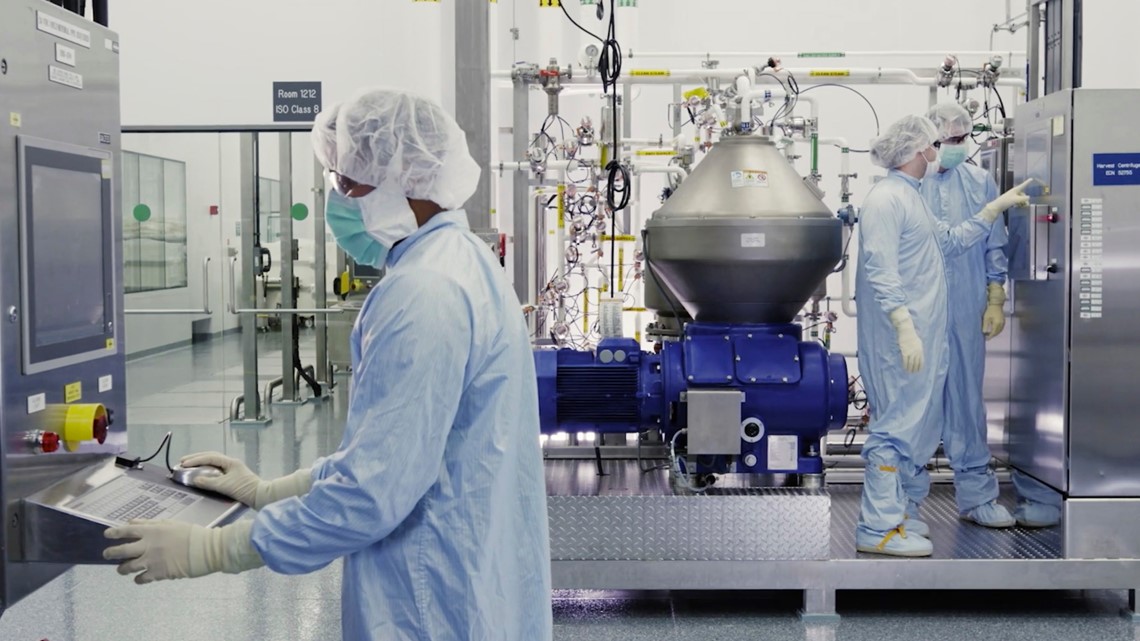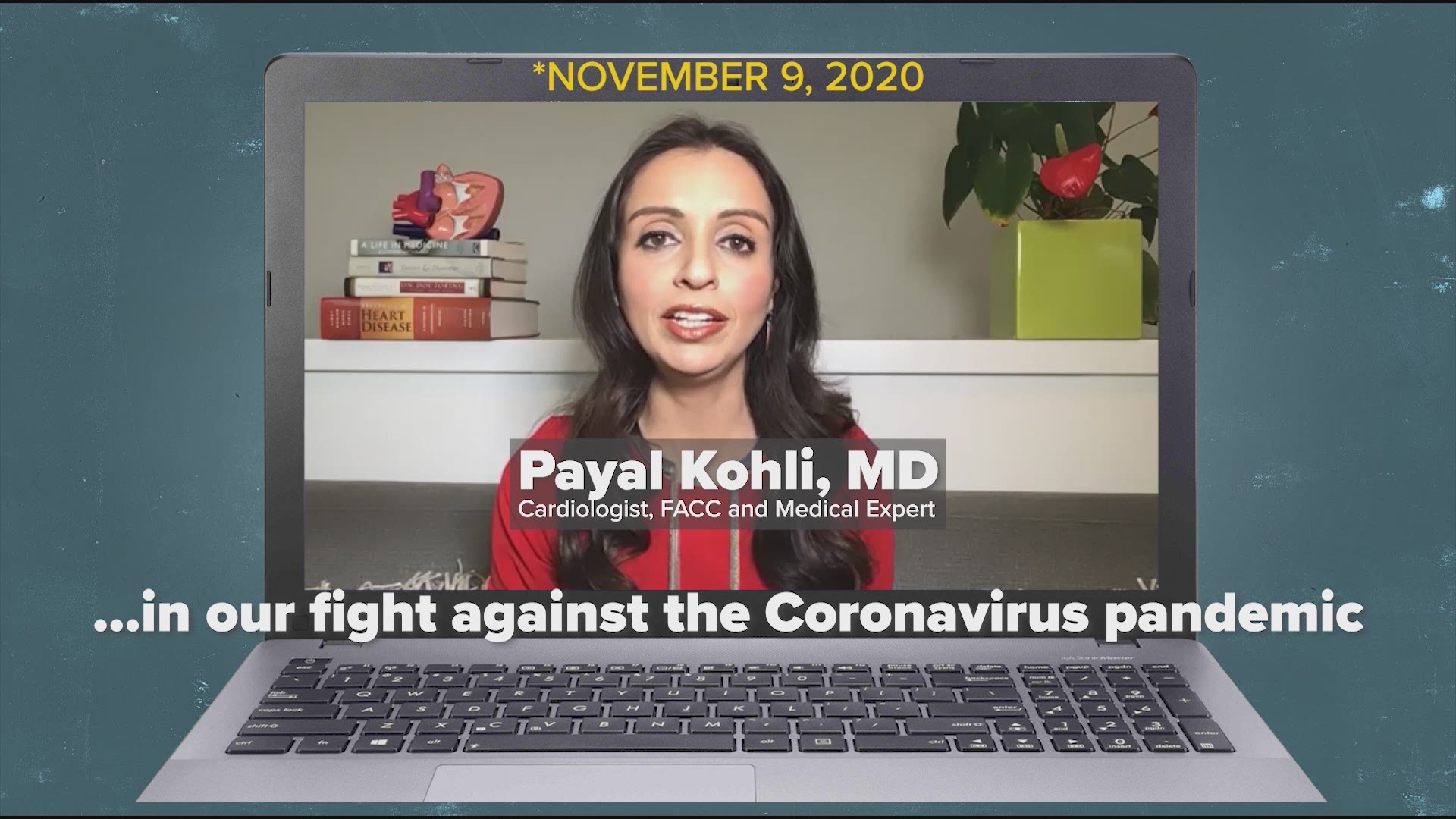WASHINGTON — The experimental treatment given to President Donald Trump while he was hospitalized with COVID-19 has been given emergency authorization from the Food and Drug Administration.
The FDA said the authorization was issued to Regeneron Pharmaceuticals Inc. on Saturday, just as the U.S. number of confirmed coronavirus cases reached 12 million, according to Johns Hopkins University.
The antibody therapy from Regeneron is two drug products, called casirivimab and imdevimab, that are injected together through intravenous (IV) infusion.
It's the second antibody treatment allowed to help the body fight COVID-19. The FDA cleared on Nov. 9 a similar experimental drug from Eli Lilly, bamlanivimab, that's also for people 12 and older with mild or moderate COVID-19.
"In a clinical trial of patients with COVID-19, casirivimab and imdevimab, administered together, were shown to reduce COVID-19-related hospitalization or emergency room visits in patients at high risk for disease progression within 28 days after treatment when compared to placebo," the FDA said in a statement. "The safety and effectiveness of this investigational therapy for use in the treatment of COVID-19 continues to be evaluated."
The one-time treatment is not authorized for patients who are hospitalized because of COVID-19 or need oxygen therapy.
FDA Commissioner Dr. Stephen Hahn said, "Authorizing these monoclonal antibody therapies may help outpatients avoid hospitalization and alleviate the burden on our health care system."
The FDA says casirivimab and imdevimab are laboratory-made antibodies specifically directed against the spike protein of the coronavirus. They're designed to block the virus’ attachment and entry into human cells.


An emergency authorization is different than an FDA approval, the federal agency says. The FDA says it's found the benefits of the antibodies outweigh the risks in treating patients with the coronavirus.
Emergency authorization allows use of the drug to start while studies are continuing to establish safety and effectiveness. Early results suggest the drug may reduce COVID-19-related hospitalization or emergency room visits in patients at high risk for disease progression, the FDA said.
Regeneron said that initial doses will be made available to roughly 300,000 patients through a federal government allocation program. Patients will not be charged for the drug but may have to pay part of the cost of giving the IV.
There's worry about access and availability of the treatment. The Washington Post and New York Times report that Regeneron executives have said the company projects having enough doses for 80,000 patients by the end of this month and 300,000 total doses by the end of January.
Trump spent three days at Walter Reed military hospital in Maryland after his infection in early October, where he received a variety of experimental treatments, including the antibody therapy from Regeneron. Trump later credited the experimental drug therapy with helping his recovery.
Trump received the Regeneron treatment through a "compassionate use" exemption, a recognition of the above-and-beyond standard of care he receives as president.
There's no way to know whether the Regeneron drug helped Trump recover; he received a host of treatments and most COVID-19 patients recover on their own.
FDA regulators authorized it using their emergency powers to quickly speed the availability of experimental drugs and other medical products during public health crises.
In normal times the FDA requires "substantial evidence" to show that a drug is safe and effective, usually through one or more large, rigorously controlled patient studies. But during public health emergencies the agency can lower those standards and require only that an experimental treatment’s potential benefits outweigh its risks.
The emergency authorization functions like a temporary approval for the duration of the COVID-19 pandemic. To win full approval, Regeneron will have to submit additional research to fully define the drug’s safety and benefit for patients.
In a statement, White House spokesman Michael Bars said the decision is a win for Trump's efforts "to deliver cutting-edge treatments with highly promising results to protect the health and safety of the most vulnerable Americans."
The Associated Press contributed.

